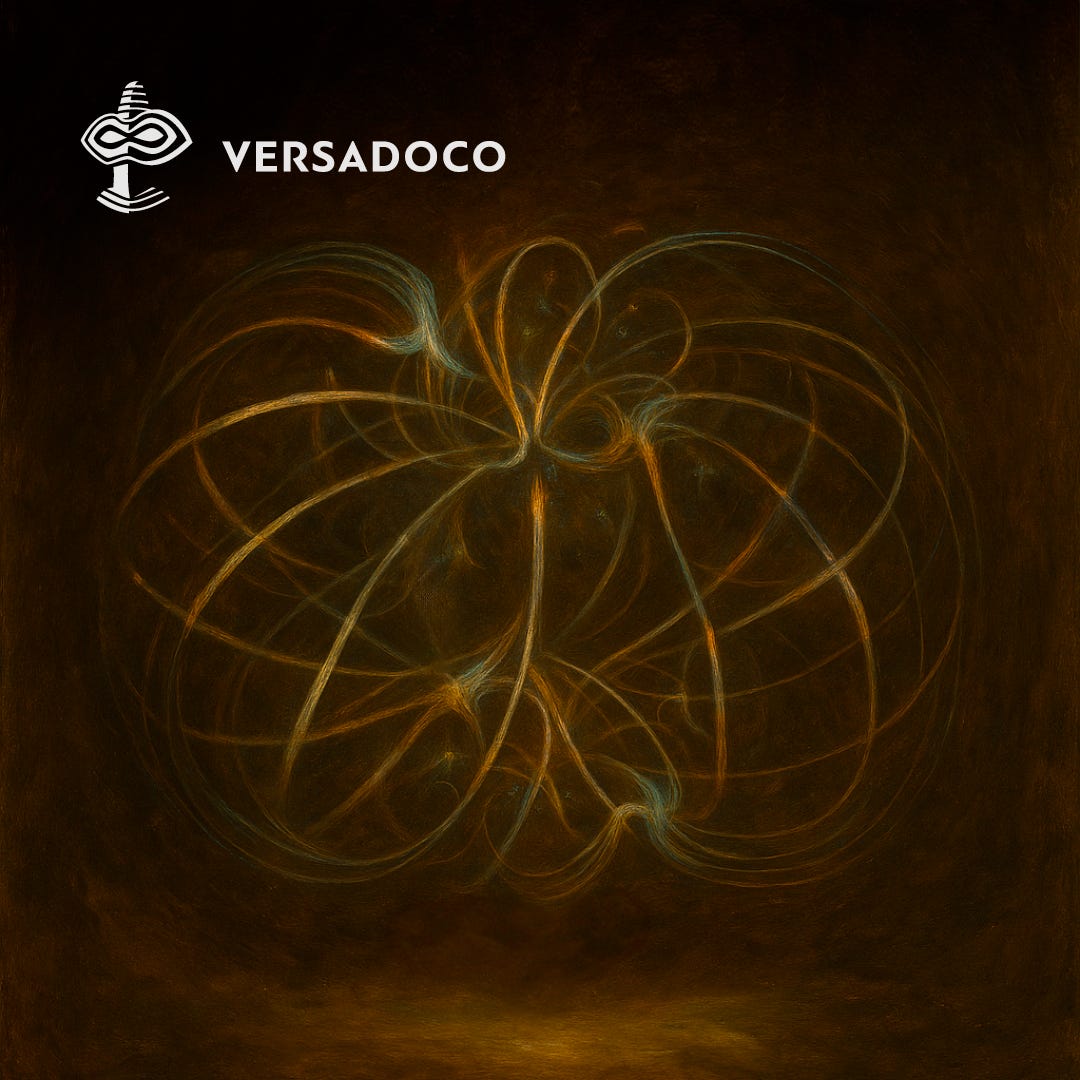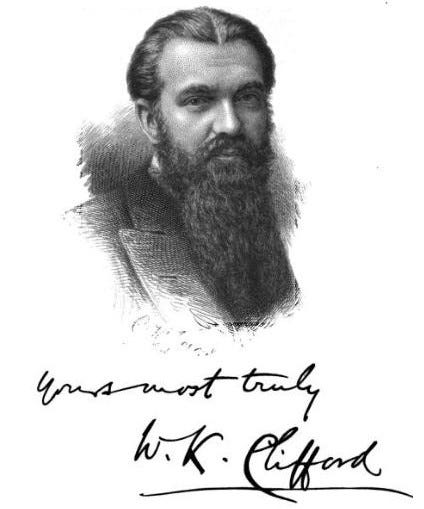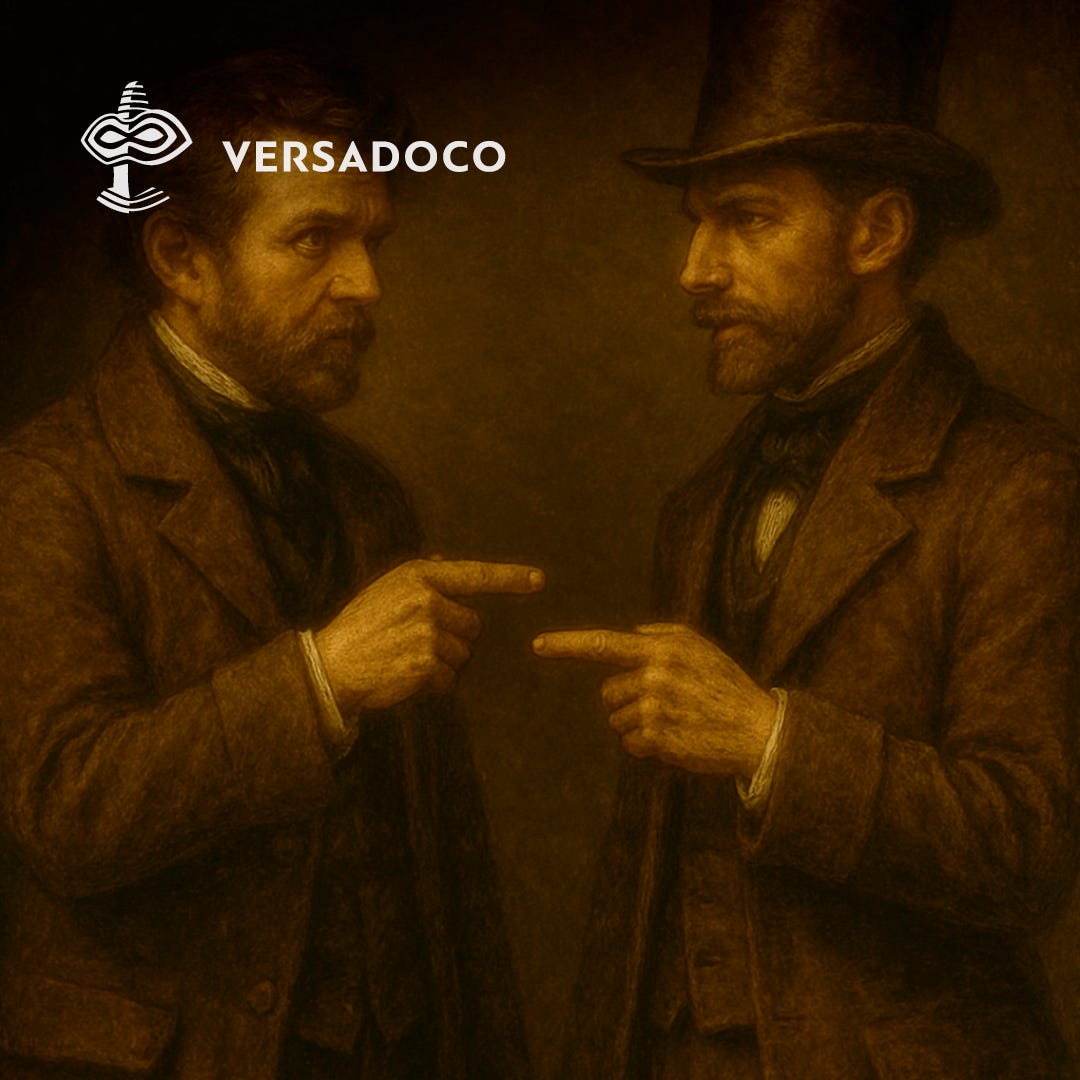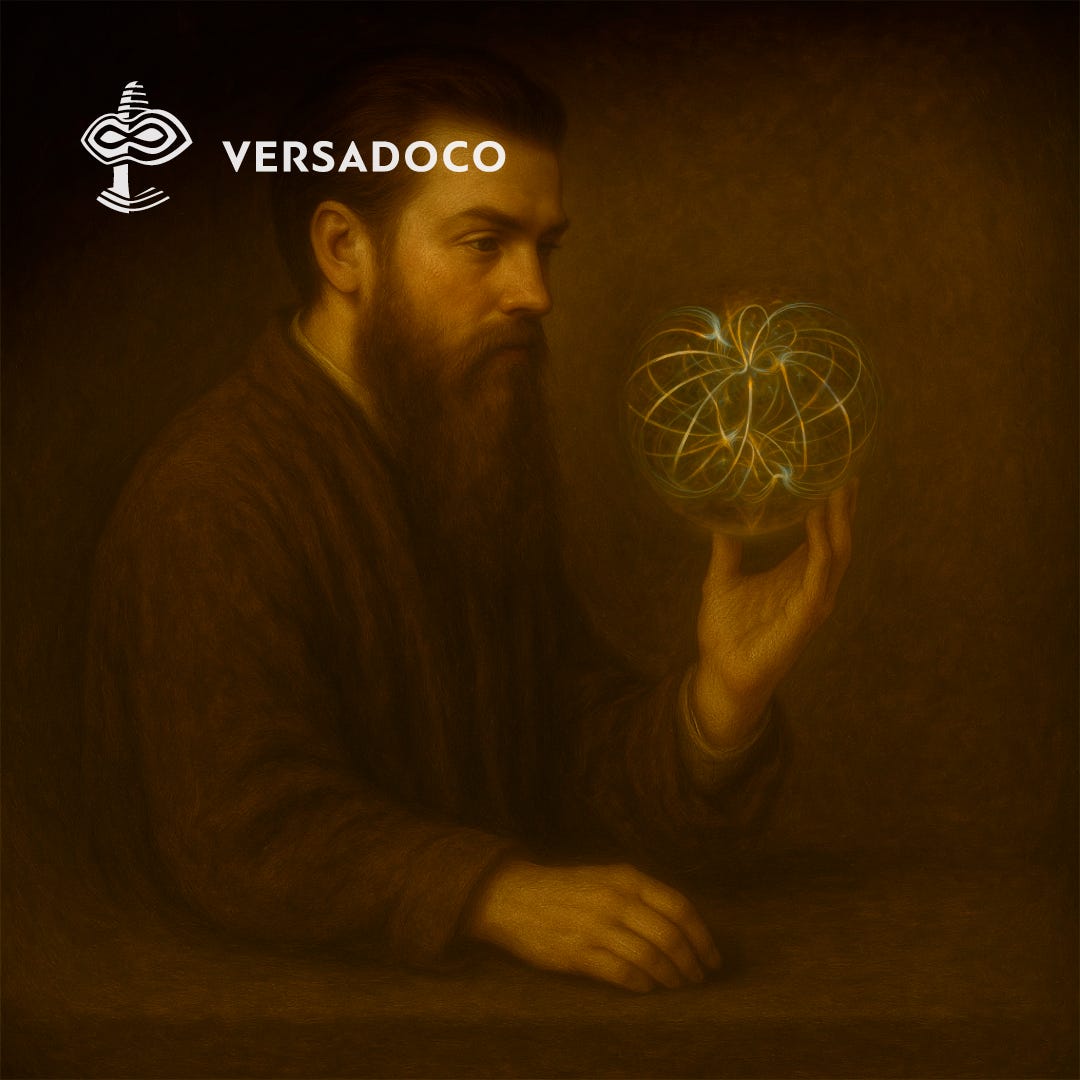On the nature of things in themselves
Mind & Matter. What is the Mind-stuff? William K. Clifford's essay
William Kingdon Clifford (4 May 1845 – 3 March 1879) was a British mathematician and philosopher.
Building on the work of Hermann Grassmann, he introduced what is now termed geometric algebra, a special case of the Clifford algebra named in his honour.
The operations of geometric algebra have the effect of mirroring, rotating, translating, and mapping the geometric objects that are being modelled to new positions.
Clifford algebras in general and geometric algebra in particular have been of ever increasing importance to mathematical physics, geometry, and computing.
Clifford was the first to suggest that gravitation might arise from the geometry of space itself and that matter might have a wave-like nature.
In his philosophical writings he coined the expression mind-stuff.
Here’s the original essay where William Clifford first introduced his idea of “mind-stuff.” Despite being written in the 19th century, many of the ideas feel strikingly modern. What some scientists today refer to as a “minimal agency” closely resembles what Clifford was already exploring back then.
You’ll also notice his influence on the later work of Penrose and Hameroff, as well as parallels with Tegmark’s ideas, especially with the broader view in physics that understanding consciousness might require a geometrization of physical laws, linking mind to the very structure of space-time.
One particularly fascinating line to reflect on:
“A feeling can exist by itself, without forming part of a consciousness. It does not depend for its existence on the consciousness of which it may form a part.”
Enjoy!
ON THE NATURE OF THINGS IN THEMSELVES
Author: William Kingdon Clifford, from the “Body and Mind” with other essays, November 1891
(All italics from the original article have been preserved. Images added by Versadoco project)
MEANING OF THE INDIVIDUAL OBJECT
My feelings arrange and order themselves in two distinct ways.
There is the internal or subjective order, in which sorrow succeeds the hearing of bad news, or the abstraction "dog" symbolizes the perception of many different dogs. And there is the external or objective order, in which the sensation of letting go is followed by the sight of a falling object and the sound of its fall.
The objective order, quá order, is treated by physical science, which investigates the uniform relations of objects in time and space.
Here the word object (or phenomenon) is taken merely to mean a group of my feelings, which persists as a group in a certain manner; for l am at present considering only the objective order of my feelings. The object, then, is a set of changes in my consciousness, and not anything out of it.
Here is as yet no metaphysical doctrine, but only a fixing of the meaning of a word. We may subsequently find reason to infer that there is something which is not object, but which corresponds in a certain way with the object; this will be a metaphysical doctrine, and neither it nor its denial is involved in the present determination of meaning.
But the determination must be taken as extending to all those inferences which are made by science in the objective order. If I hold that there is hydrogen in the sun, I mean that if I could get some of it in a bottle, and explode it with half its volume of oxygen, I should get that group of possible sensations which we call “water."
The inferences of physical science are all inferences of my real or possible feelings; inferences of something actually or potentially in my consciousness, not of anything outside it.
DISTINCTION OF OBJECT AND EJECT
There are, however, some inferences which are profoundly different from those of physical science.
When I come to the conclusion that you are conscious, and that there are objects in your consciousness similar to those in mine, I am not inferring any actual or possible feelings of my own, but your feelings, which are not, and cannot by any possibility become, objects in my consciousness. The complicated processes of your body, and the motions of your brain and nervous. system, inferred from evidence of anatomical researches, are all inferred as things possibly visible to me.
However remote the inference of physical science, the thing inferred is always a part of me, a possible set of changes in my consciousness bound up in the objective order with other known changes. But the inferred existence of your feelings, of objective groupings among them similar to those among my feelings, and of a subjective order in many respects analogous to my own-these inferred existences are in the very act of inference thrown out of my consciousness, recognized as outside of it, as not being a part of me.
I propose, accordingly, to call these inferred existences ejects, things thrown out of my consciousness, to distinguish them from objects, things presented in my consciousness, phenomena.
It is to be noticed that there is a set of changes of my consciousness symbolic of the eject, which may be called my conception of you; it is (I think) a rough picture of the whole aggregate of my consciousness, under imagined circumstances like yours; quá group of my feelings, this conception is like the object in substance and constitution, but differs from it in implying the existence of something that is not itself, but corresponds to it, namely, of the eject.
The existence of the object, whether perceived or inferred, carries with it a group of beliefs; these are always beliefs in the future sequence of certain of my feelings.
The existence of this table, for example, as an object in my consciousness, carries with it the belief that if I climb up on it I shall be able to walk about on it as if it were the ground. But the existence of my conception of you in my consciousness carries with it a belief in the existence of you outside of my consciousness, a belief which can never be expressed in terms of the future sequence of my feelings.
How this inference is justified, how consciousness can testify to the existence of anything outside of itself, I do not pretend to say; I need not untie a knot which the world has cut for me long ago. It may very well be that I myself am the only existence, but it is simply ridiculous to suppose that anybody else is.
The position of absolute idealism may, therefore, be left out of count, although each individual may be unable to justify his dissent from it.
FORMATION OF THE SOCIAL OBJECT
The belief, however, in the existence of other men's consciousness, in the existence of ejects, dominates every thought and every action of our lives. In the first place, it profoundly modifies the object. This room, the table, the chairs, your bodies, are all objects in my con-sciousness; as simple objects, they are parts of me.
But I somehow infer the existence of similar objects in your consciousness, and these are not objects to me, nor can they ever be made so; they are ejects.
This being so, I bind up with each object as it exists m my mind the thought of similar objects existing in other men's minds: and I thus form the complex conception, "this table, as an object in the minds of men," or, as Mr. Shadworth Hodgson puts it, an object of consciousness in general.
This conception symbolizes an indefinite number of ejects, together with one object which the conception of each eject more or less resembles. Its character is therefore mainly ejective in respect of what it symbolizes, but mainly objective in respect of its nature.
I shall call this complex conception the social object; it is a symbol of one thing (the individual object, it may be called for distinction's sake) which is in my consciousness, and of an indefinite number of other things which are ejects and out of my consciousness.
Now, it is probable that the individual object, as such, never exists in the mind of man. For there is every reason to believe that we were gregarious animals before we became men properly so called.
And a belief in the eject-some sort of recognition of a kindred consciousness in one's fellow-beings-is clearly a condition of gregarious action among animals so highly developed as to be called conscious at all.
Language, even in its first beginnings, is impossible without that belief; and any sound which, becoming a sign to my neighbor, becomes thereby a mark to myself, must by the nature of the case be a mark of the social object, and not of the individual object.
But if not only this conception of the particular social object, but all those that have been built up out of it, have been formed at the same time with, and under the influence of, language, it seems to follow that the belief in the existence of other men's minds like our own, but not part of us, must be inseparably associated with every process whereby discrete impressions are built together into an object.
I do not, of course, mean that it presents itself in consciousness as distinet ; but l mean that as an object is formed in my mind, a fixed habit causes it to be formed as a social object, and insensibly embodies in it a reference to the minds of other men. And this sub-conscious reference to supposed ejects is what constitutes the impression of externality in the object, whereby it is described as not-me.
At any rate, the formation of the social object supplies an account of this impression of outness, without requiring me to assume any ejects or things outside my consciousness, except the minds of other men.
Consequently, it cannot be argued from the impression of outness that there is anything outside of my consciousness, except the minds of other men.
I shall argue presently that we have grounds for believing in non-personal ejects, but these grounds are not in any way dependent on the impression of outness, and they are not included in the ordinary or common-sense view of things.
It seems to me that the prevailing belief of uninstructed people is merely a belief in the social object, and not in a non-personal eject, somehow corresponding to it ; and that the question, whether the latter exists or not, is one which cannot be put to them so as to convey any meaning without considerable preliminary training. On this point I agree entirely with Berkeley, and not with Mr. Spencer.
DIFFERENCE BETWEEN MIND AND BODY
I do not pause to show how belief in the Eject underlies the whole of natural ethics, whose first great commandment, evolved in the light of day by healthy processes wherever men have lived together, is, "Put yourself in his place."
It is more to my present purpose to point out what is the true difference between body and mind.
Your body is an object in my consciousness; your mind is not, and never can be.
Being an object, your body follows the laws of physical science, which deals with the objective order of my feelings. That its chemistry is ordinary chemistry, its physics ordinary physics, its mechanics ordinary mechanics, may or may not be true; the circumstances are exceptional, and it is conceivable (to persons ignorant of the facts) that allowance may have to be made for them, even in the expression of the most general laws of nature.
But in any case, every question about your body is a question about the physical laws of matter, and about nothing else. To say: "Up to this point science can explain; here the soul steps in," is not to say what is untrue, but to talk nonsense.
If evidence were found that the matter constituting the brain behaved otherwise than ordinary matter, or if it were impossible to describe vital actions as particular examples of general physical rules, this would be a fact in physics, a fact relating to the motion of matter; and it must either be explained by further elaboration of physical science or else our conception of the objective order of our feelings would have to be changed.

The question, "Is the mind a force?" is condemned by similar considerations. A certain variable quality of matter (the rate of change of its motion) is found to be invariably connected with the position relatively to it of other matter; considered as expressed in terms of this position, the quality is called Force.
Force is thus an abstraction relating to objective facts ; it is a mode of grouping of my feelings, and cannot possibly be the same thing as an eject, another man's consciousness.
But the question: "Do the changes in a man's consciousness run parallel with the changes of motion, and, therefore, with the forces in his brain?" is a real question, and not primâ facie nonsense.
Objections of like character may be raised against the language of some writers who speak of changes in consciousness as caused by actions on the organism.
The word Cause, and misleading as it is, having no legitimate place in science or philosophy, may yet be of some use in conversation or literature, if it is kept to denote a relation between objective facts, to describe certain parts of the phenomenal order.
But only confusion can arise if it is used to express the relation between certain objective facts in my consciousness and the ejective facts which are inferred as corresponding in some way to them and running parallel with them. For all that we know at present, this relation does not in any way resemble that expressed by the word Cause.
To sum up, the distinction between eject and object, properly grasped, forbids us to regard the eject, another man's mind, as coming into the world of objects in any way, or as standing in the relation of cause or effect to any changes in that world. I need hardly add that the facts do very strongly lead us to regard our bodies as merely complicated examples of practically universal physical rules, and their motions as determined in the same way as those of the sun and the sea.
There is no evidence which amounts to a primâ facie case against the dynamical uniformity of Nature; and I make no exception in favor of that slykick force which fills existing lunatic asylums and makes private houses into new ones.
CORRESPONDENCE OF ELEMENTS OF MIND AND BRAIN-ACTION
I have already spoken of certain ejective facts-the changes in your consciousness-as running parallel with the changes in your brain, which are objective facts.
The parallelism here meant is a parallelism of complexity, an analogy of structure. A spoken sentence and the same sentence written are two utterly unlike things, but each of them consists of elements; the spoken sentence of the elementary sounds of the language, the written sentence of its alphabet.
Now the relation between the spoken sentence and its elements is very nearly the same as the relation between the written sentence and its elements.
There is a correspondence of element to element; although an elementary sound is quite a different thing from a letter of the alphabet, yet each elementary sound belongs to a certain letter or letters.
And the sounds being built up together to form a spoken sentence, the letters are built up together, in nearly the same way, to form the written sentence.
The two complex products are as wholly unlike as the elements are, but the manner of their complication is the same. Or, as we should say in the mathematics, a sentence spoken is the same function of the elementary sounds as the same sentence written is of the corresponding letters.
Of such a nature is the correspondence or parallelism between mind and body.
The fundamental "deliverance" of consciousness affirms its own complexity. It seems to me impossible, as I am at present constituted, to have only one absolutely simple feeling at a time. Not only are my objective perceptions, as of a man's head or a candlestick, formed of a great number of parts ordered in a definite manner, but they are invariably accompanied by an endless string of memories, all equally complex.
And those massive organic feelings with which, from their apparent want of connection with the objective order, the notion of consciousness has been chiefly associated,ーthose also turn out, when attention is directed to them, to be complex things.
In reading over a former page of my manuscript, for instance, I found suddenly, on reflection, that although I had been conscious of what I was reading I paid no attention to it; but had been mainly occupied in debating whether faint red lines would not be better than blue ones to write upon, in picturing the scene in the shop when I should ask for such lines to be ruled, and in reflecting on the lamentable helpnessness of nine men out of ten when you ask them to do anything slightly different from what they have been accustomed to do.
This debate had been started by the observation that my handwriting varied in size according to the nature of the argument, being larger when that was diffuse and explanatory, occupied with a supposed audience; and smaller when it was close, occupied only with the sequence of propositions.
Along with these trains of thought went the sensation of noises made by poultry, dogs, children and organ-grinders; and that vague diffused feeling in the side of the face and head which means a probable toothache in an hour or two.
Under these circumstances, it seems to me that consciousness must be described as a succession of groups of changes, as analogous to a rope made of a great number of occasionally interlacing strands.
This being so, it will be said that there is a unity in all this com-plexity, that in all these varied feelings it is I who am conscious, and that this sense of personality, the self-perception of the Ego, is one and indivisible. It seems to me (here agreeing with Hume) that the "unity of apperception" does not exist in the instantaneous consciousness which it unites, but only in subsequent reflection upon it; and that it consists in the power of establishing a certain connection between the memories of any two teelings which we had at the same instant.
A feeling, at the instant when it exists, exists an und für sich, and not as my feeling; but when on reflection I remember it as my feeling, there comes up not merely a faint repetition of the feeling, but inextricably connected with it a whole set of connections with the general stream of my consciousness.
This memory, again, quâ memory, is relative to the past feeling which it partially recalls; but in so far as it is itself a feeling, it is absolute, Ding-an-sich.
The feeling of personality, then, is a certain feeling of connection between faint images of past feelings; and personality itself is the fact that such connections are set up, the property of the stream of feelings that part of it consists of links binding together faint reproductions of previous parts.
It is thus a relative thing, á mode of complication of certain elements, and a property of the complex so produced.
This complex is consciousness.
When a stream of feelings is so compact together that at each instant it consists of (1) new feelings,
(2) fainter repetitions of previous ones,
and (3) links connecting these repetitions, the stream is called a consciousness.
A far more complicated grouping than is necessarily implied here is established when discrete impressions are run together into the perception of an object. The conception of a particular object, as object, is a group of feelings symbolic of many different perceptions, and of links between them and other feelings.
The distinction between Subject and Object is two-fold; first, the distinction with which we started between the subjective and objective orders which simultaneously exist in my feelings; and secondly, the distinction between me and the social object, which involves the distinction between me and you.
Either of these distinctions is exceedingly complex and abstract, involving a highly organized experience.
It is not, I think, possible to separate one from the other; for it is just the objective order which I do suppose to be common to me and to other minds.
I need not set down here the evidence which shows that the complexity of consciousness is paralleled by complexity of action in the brain.
It is only necessary to point out what appears to me to be a consequence of the discoveries of Müller and Helmholtz in regard to sensation; that at least those distinct feelings which can be remembered and examined by reflection are paralleled by changes in a portion of the brain only. In the case of sight, for example, there is a message taken from things outside to the retina, and therefrom sent in somewhither by the optic nerve; now we can tap this telegraph at any point and produce the sensation of sight, without any impression on the retina.
It seems to follow that what is known directly is what takes place at the inner end of this nerve, or that the consciousness of sight is simultaneous and parallel in complexity with the changes in the gray matter at the internal extremity and not with the changes in the nerve itself, or in the retina.
So also a pain in a particular part of the body may be mimicked by neuralgia due to lesion of another part.
We come then, finally, to say that as your consciousness is made up of elementary feelings grouped together in various ways (ejective facts), so a part of the action in your brain is made up of more elementary actions in parts of it, grouped together in the same ways (objective facts).
The knowledge of this correspondence is a help to the analysis of both sets of facts; but it teaches us in particular that any feeling, however apparently simple, which can be retained and examined by reflection, is already itself a most complex structure. We may, however, conclude that this correspondence extends to the elements, and that each simple feeling corresponds to a special comparatively simple change of nerve-matter.
THE ELEMENTARY FEELING IS A THING IN ITSELF
The conclusion that elementary feeling co-exists with elementary brain-motion in the same way as consciousness co-exists with complex brain-motion, involves more important consequences than might at first sight appear.
We have regarded consciousness as a complex of feelings, and explained the fact that the complex is conscious as depending on the mode of complication.
But does not the elementary feeling itself imply a consciousness in which alone it can exist, and of which it is a modification? Can a feeling exist by itself, without forming part of a consciousness?
I shall say no to the first question, and yes to the second, and it seems to me that these answers are required by the doctrine of Evolution. For if that doctrine be true, we shall have along the line of the human pedigree a series of imperceptible steps connecting inorganic matter with ourselves.
To the later members of that series we must undoubtedly ascribe consciousness, although it must, of course, have been simpler than our own.
But where are we to stop?
In the case of organisms of a certain complexity consciousness is inferred. As we go back along the line, the complexity of the organism and of its nerve-action insensibly diminishes; and for the first part of our course we see reason to think that the complexity of consciousness insensibly diminishes also.
But if we make a jump, say to the tunicate molluscs, we see no reason there to infer the existence of consciousness at all. Yet not only is it impossible to point out a place where any sudden break takes place, but it is contrary to all the natural training of our minds to suppose a breach of continuity so great.
All this imagined line of organisms is a series of objects in my consciousness; they form an insensible gradation, and yet there is a certain unknown point at which I am at liberty to infer facts out of my consciousness corresponding to them!
There is only one way out of the difficulty, and to that we are driven. Consciousness is a complex of ejective facts-of elementary feelings, or rather of those remoter elements which cannot even be felt, but of which the simplest feeling is built up.
Such elementary ejective facts go along with the action of every organism, however simple; but it is only when the material organism has reached a certain complexity of nervous structure (not now to be specified) that the complex of ejective facts reaches that mode of complication which is called "consciousness."
But as the line of ascent is unbroken, and must end at last in inorganic matter, we have no choice but to admit that every motion of matter is simultaneous with some ejective fact or event which might be part of a consciousness.
From this follow two important corollaries:
A feeling can exist by itself, without forming part of a consciousness. It does not depend for its existence on the consciousness of which it may form a part. Hence a feeling (or an eject-element) is Ding-an-sich, an absolute, whose existence is not relative to anything else. Sentitur is all that can be said.
These eject-elements, which correspond to motions of matter, are connected together in their sequence and co-existence by counterparts of the physical laws of matter. For otherwise the correspondence could not be kept up.
MIND STUFF IS THE REALITY WHICH WE PERCEIVE AS MATTER
That element of which, as we have seen, even the simplest feeling is a complex, I shall call mind-stuff. A moving molecule of inorganic matter does not possess mind or consciousness; but it possesses a small piece of mind-stuff.
When molecules are so combined together as to form the film on the under side of a jelly-fish, the elements of mind-stuff which go along with them are so combined as to form the faint beginnings of Sentience.
When the molecules are so combined as to form the brain and nervous system of a vertebrate, the corresponding elements of mind-stuff are so combined as to form some kind of consciousness; that is to say, changes in the complex which take place at the same time get so linked together that the repetition of one implies the repetition of the other.
When matter takes the complex form of a living human brain, the corresponding mind-stutt takes the form of a human consciousness, having intelligence and volition.
Suppose that I see a man looking at a candlestick.
Both of these are objects, or phenomena, in my mind. An image of the candlestick, in the optical sense, is formed upon his retina, and nerve messages go from all parts of this to form what we may call a cerebral image somewhere in the neighborhood of the optic thalami in the inside of his brain.
This cerebral image is a certain complex of disturbances in the matter of these organs; it is a material or physical fact, therefore a group of my possible sensations, just as the candlestick is.
The cerebral image is an imperfect representation of the candlestick.. corresponding to it point for point in a certain way. Both the candlestick and the cerebral image are matter; but one material complex represents the other material complex in an imperfect way.
Now, the candlestick is not the external reality whose existence is represented in the man's mind; for the candlestick is a mere perception in my mind. Nor is the cerebral image the man's perception of the candlestick; for the cerebral image is merely an idea of a possible perception in my mind. But there is a perception in the man's mind, which we may call the mental image; and this corresponds to some external reality.
The external reality bears the same relation to the mental image that the (phenomenal) candlestick bears to the cerebral image.
Now, the candlestick and the cerebral image are both matter; they are made of the same stuff. Therefore the external reality is made of the same stuff as the man's perception or mental image— that is, it is made of mind-stuff.
And as the cerebral image represents imperfectly the candlestick, in the same way and to the same extent the mental image represents the reality external to his con-sciousness.
Thus in order to find the thing in itself which is repre-rented by any object in my consciousness, such as a candlestick, have to solve this question in proportion, or rule of three:—
As the physical configuration of my cerebral image of the object
is to the physical configuration of the object,
so is my perception of the object (the object regarded as complex of my feelings)
to the thing in itself.
Hence we are obliged to identify the thing in itself with that complex of elementary mind-stuff which on other grounds we have seen reason to think of as going along with the material object. Or, to say the same thing in other words, the reality external to our minds which is represented in our minds as matter is in itself mind-stuff.
The universe, then, consists entirely of mind-stuff.
Some of this is woven into the complex form of human minds containing imperfect representations of the mind-stuff outside them, and of themselves also, as a mirror reflects its own image in another mirror, ad infinitum.
Such an imperfect representation is called a material universe.
It is a picture in a man's mind of the real universe of mind-stuff.
The two chief points of, this doctrine may be thus summed up:
Matter is a mental picture in which mind-stuff is the thing represented.
Reason, intelligence and volition are properties of a complex which is made up of elements themselves not rational, not intelligent, not conscious.
Note.—The doctrine here expounded appears to have been arrived at independently by many persons; as was natural, seeing that it is (or seems to me) a necessary consequence of recent advances in the theory of perception. Kant1 threw out a suggestion that the Ding-an-sich might be of the nature of mind; but the first statement of the doctrine in its true connection that I know of is by Wundt.
1 "Kritik der reinin Vernunft," pp. 287, 288, ed. Rosenkranz. Wundt's state-ment is in the concluding paragraphs of "Grundzüge der physiologischen Psychologie." Compare, too, Häckel, "Zellseelen und Seelenzellen," Rundschau," July, 1878, vol. xvi., p. 40.
Since it dawned on me, some time ago, I have supposed myself to find it more or less plainly hinted in many writings; but the question is one in which it is peculiarly difficult to make out precisely what another man means, and even what one means one's self.
Some writers (e.g., Dr. Tyndall) have used the word "matter" to mean the phenomenon plus the reality represented; and there are many reasons in favor of such usage in general. But for the purposes of the present discussion I have thought it clearer to use the word for the phenomenon as distinguished from the thing in itself.
Source: Body and mind: with other essays by W. K. Clifford
→Subscribe to Versadoco YouTube channel and turn on notifications 🔔 so you don't miss any videos.
→Join this channel to get access to future perks and support production -https://www.youtube.com/channel/UCOJAGwgBflcY9EZHjpe0abw/join
⭐️Join us on Patreon - https://www.patreon.com/_Versadoco_
🧢Versadoco Merch - https://versadoco-shop.fourthwall.com
→Ways to Donate:
💸 PayPal donation - https://www.paypal.com/donate/?hosted_button_id=E9BVHT3PC5DEU
🔶️Crypto: Etherium (network Etherium): 0xC8Ea703890AD6ae20A2C9252D82D934D58E62E16
Bitcoin (Native Segwit): bc1qz2s48t7a5uejar6dy3fu5nlf7naz7m4959lw0s
⭐️You can buy me a book from my wishlist here - https://www.amazon.com.au/hz/wishlist/ls/1N8WVKGSTHVLW?ref_=wl_share













